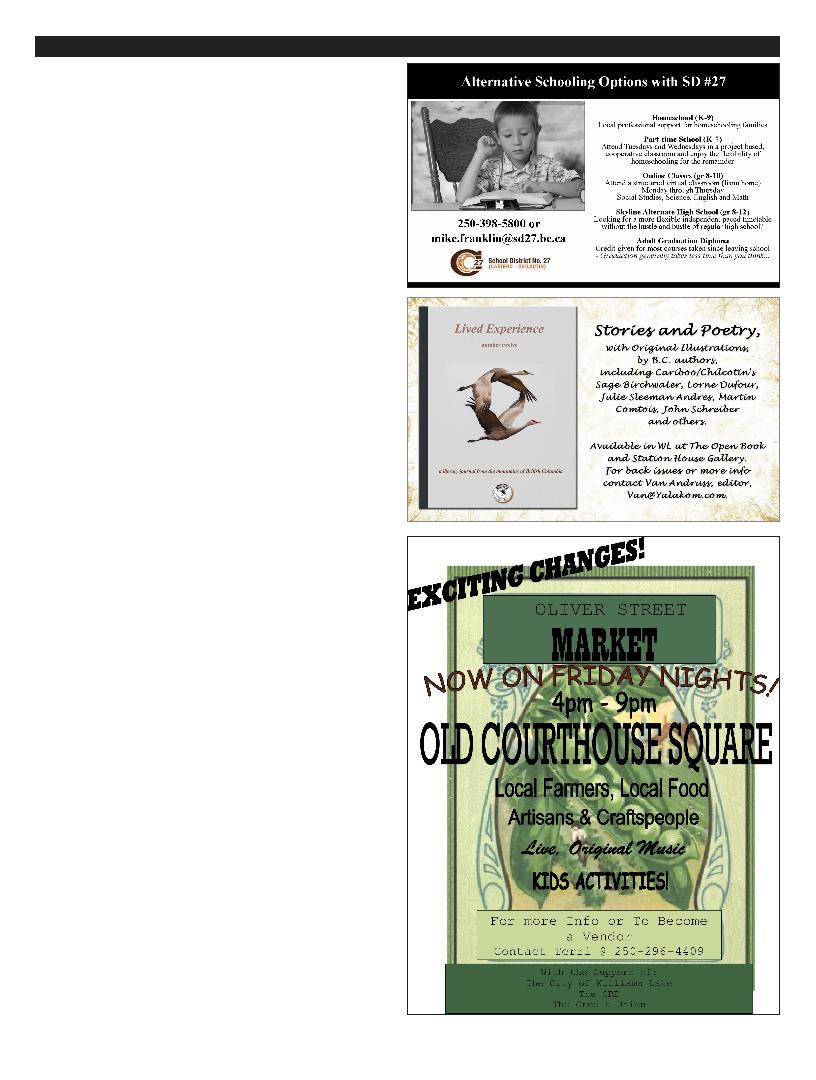
feel about the recent provincial
election, I'd have to say I'm disap-
pointed, I'm amazed, and I'm
want the
my friends thought that a party so reckless
and underhanded could possibly be the
choice of BC's electorate; alarmed, be-
cause I fear the consequences, both envi-
ronmentally and socially.
Change! Even that staunch man of the peo-
ple in the Cariboo, Bob Simpson, was
ousted from his seat.
really went after the fable that the NDP
would mean an "economic downturn."
Folks got scared, and suddenly No Change
seemed preferable. It's unlikely that the
NDP would have made any remarkable
changes anyway in the heedless direction of
things in the province. The NDP has shown
itself unable to maintain its stance as the
party of the people, and working people
especially. They have all but divested them-
selves of their socialist past, and, rather than
defending their original values, they appear
to have settled for getting elected.
sents an appetite in BC for real change, a
shift towards environmental consciousness
and social justice ("social justice": genuine
respect for people and place). I can't but
regard this as positive. Newly elected An-
drew Weaver of Oak Bay-Gordon Head will
insure that at least one Green voice will be
heard in the provincial parliament, however
disregarded by the Big Players.
available at the polls. As the media depicts
it, you'd think politics in the province is just
a game between the Neo-Liberals and the
NDPs. This paradigm is deceiving, and
wrong. Including the Green Party, alterna-
tive opportunities to influence the political
right do exist, only they are not neatly
bound in a single package that you could
step out and vote for.
we're hoping for. In its primary phases, at
least, such changes need to be pursued by
people in their home places. Indeed, they
are cultural rather than political. We're call-
ing for a change of heart, a show of love and
mercy towards the natural world and each
other. The great work is to convert our pre-
sent competitive system into a co-operative
and caring one. That's not too much to ask,
though, in truth, caring for people and place
is viewed by many as "radical."
other in ways that are adaptive to a rapidly
changing world. That would be intelligent.
But we know we can't expect the Establish-
ment to get behind an "experimental soci-
ety."
the World, with co-operative efforts arising
everywhere, and this movement is largely
with a capital P seems ludicrous by contrast.
Yet, manipulated by corporate heads, the
System can not change of its own volition.
determination, to try out social alternatives.
I keep harking back to that period because it
was the time that converted me to a friend-
lier, more interesting lifestyle. As one heav-
ily focused on ecological defense, it is nec-
essary to recall a time when folks were not
so mesmerized by material goods. The ear-
lier social atmosphere encouraged us to
believe we possessed a wealth of options,
and experiments in the conduct of everyday
life seemed natural and inviting.
pation. People of my community spent thou-
sands of hours in conversation with logging
companies and sat on the Ministry of For-
ests' land use planning committees, in the
belief that Crown Land over ninety per
cent of the province belonged to the peo-
ple of BC, one and all. Thus we insisted on
being consulted about industry in our re-
gion. It is true that our participation in gov-
ernment programs was ritualistic with small
results, but then we were educated by the
effort.
social atmosphere, especially in politics, has
grown more restrictive, more narrow-
minded, with the result that one's social
imagination begins to wither.
ing down this creative part of our lives. If
this vital organ is stifled, well, we must free
it up again. To say so might sound naïve but
what else can we do?
independence from the methods of Indus-
trial Civilization was our aim. We saw the
formation of our commune as an appropriate
alternative to the mechanization of daily
life. Face-to-face relations seemed impera-
tive. We organized ourselves as a "chosen
family" in hopes of restoring wholeness to
our persons. We named ourselves a "hearth-
group" community, bought land together,
worked together, and shared a single house-
hold. The benefit of this plan was that we
had direct access to each other and didn't
depend on public institutions to mediate our
relations.
either decades ago or now. But I offer my
case to remind us that people can change the
routine of their lives and make a difference
despite the current political paralysis. A
strong wave of change has begun, anyway.
Individuals everywhere are searching for a
purpose that can restore a greater meaning
to existence. By persistence, we will get
beyond consumerism and the rage for oil.
Experience. He enjoys the bioregional life
and community in historic Moha outside of
Lillooet, B.C.